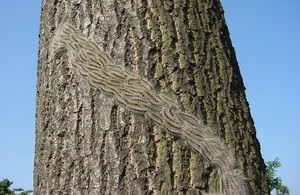17,000 more fish released into Lincolnshire’s River Witham
Another 17,000 fish have been reintroduced into Lincolnshire’s River Witham by Environment Agency teams as part of ongoing efforts to help the river recover from last year’s devastating pollution.
It brings the grand total of fish restocked into the river to 91,000 so far, plus around 1.5 million larvae.
The restocking will help restore the river to its natural, healthy state, after a serious pollution in March 2018, when ammonia badly affected the river and its ecosystems from Bardney to the Wash. More than 100,000 fish were killed in what’s thought to be the worst river pollution ever recorded in the county.
The last round of restocking took place in May, when 34,000 roach and bream were placed back into the river.
All the fish were bred at the Environment Agency’s national coarse fish farm in Calverton, Nottinghamshire, before being transported and released into the river by fisheries officers.
Darren Randall, fisheries officer at the Environment Agency, said:
Last year’s pollution had a devastating impact on the Witham and its wildlife, but we’re doing all we can to help return it to its former glory.
A river can take years or even decades to recover from such a serious pollution, but reintroducing these fish will help restore its complex ecosystems and natural balance. It’s just one way we’re working to protect and improve the environment, for people and nature.
Strong, healthy fish and larvae from Calverton play an important role in the work of the Environment Agency to restore sustainable fisheries – they replace stocks lost to pollution, improve stocks where natural reproduction is low, and help create fisheries in areas where there is a shortage of angling opportunities.
All the fish farm’s work is funded by income from fishing licence fees – you can find out more about fishing licences, including how to buy one, on GOV.UK.
Anyone who suspects a pollution incident is urged to report it to the Environment Agency’s incident hotline on 0800 80 70 60.


